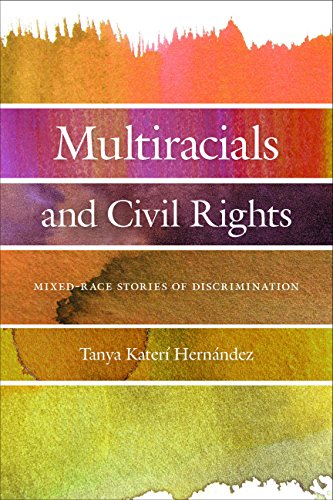Tanya Katerí Hernández’s “Multiracials and Civil Rights”
The Page 99 Test
2018-08-08
Marshal Zeringue

Tanya Katerí Hernández is the Archibald R. Murray Professor of Law at Fordham University School of Law, where she co-directs the Center on Race, Law & Justice as its Head of Global and Comparative Law Programs and Initiatives.
She applied the “Page 99 Test” to her new book, Multiracials and Civil Rights: Mixed-Race Stories of Discrimination, and reported the following:
The Page 99 Test is like some numerical sorcery from a Jorge Luis Borges story, mythical and unfathomable yet accurate all at the same time. On page 99 of Multiracials and Civil Rights: Mixed-Race Stories of Discrimination, I describe how the U.S. government refused to add a “multiracial” category to its list of racial categories on the decennial census form in 1997, and instead started permitting respondents to select as many racial categories apply to their racial identity. The page then notes that the most zealous of multiracial category proponents were not satisfied by this government method of enumerating the population of racially mixed residents “because multiple box checking does not directly promote a distinct multiracial identity.” Page 99’s insight into the entire book though is revealed in the assessment that the significance of the census racial category debate:
extends beyond the actual decision of how mixed-race persons should be counted. What is most salient is how the struggles over the census racial categories have fostered a discourse of exalting personal racial identity and characterizing any incursions on expressions of personal identity as a civil rights issue in of itself absent any mixed-race specific material inequality.
Read the entire article here.
